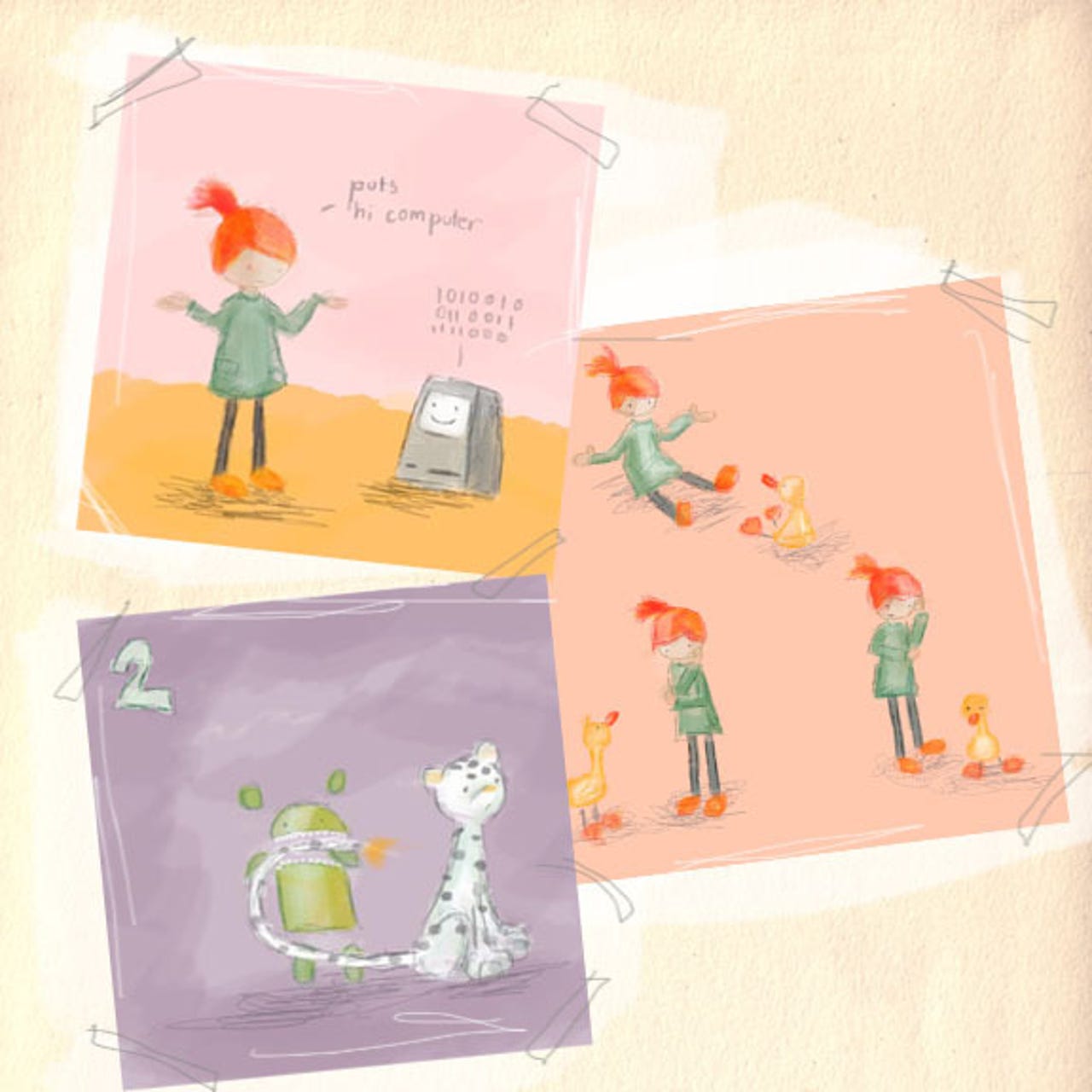Penguins, robots, $387,000: The story of finding the secret recipe to get kids to love coding


Linda Liukas thought her project might be popular, but the numbers took her breath away.
Within hours of launching Hello Ruby, a book designed to teach five- to seven-year-olds how to code, on Kickstarter Liukas had beaten her $10,000 fundraising target. 30 days later, the Finnish native had raised $387,000 from over 9,000 backers.
While it's hard to pinpoint the exact reasons for any Kickstarter success, Hello Ruby seems to have launched in a perfect storm. As governments across Europe plan initiatives to interest young people in learning programming, Liukas may have just shown them how to do it.
Unlike traditional dry text books, Hello Ruby is disguised as a children's story and activity book, and teaches the foundations of technology and basic programming skills through fun stories. Liukas believes that the book’s approach can serve as a model for how to get kids interested in the subject.
"I think the success of Hello Ruby shows there is a huge market for these types of products," she says. "Most of the early programming education materials were created from a very tool/instruction centric perspective — I think people want to see more creative ways to learn."
Liukas has plenty of experience in working with junior coders. She is the co-founder of Rails Girls, a global non-profit teaching programming to women and worked for New York-based Codecademy. Liukas is also part of a project helping to create a new curriculum for Finnish schools.
The idea for Hello Ruby came to Liukas three years ago when she was teaching herself programming. Liukas describes the book as a classic journey of discovery: Ruby is small girl with a huge imagination who stumbles around in her own little world, making friends with a lonely snow leopard, meeting robots and solving problems with wise penguins.
Instead of focusing solely on how applications are built or code is written, Hello Ruby teaches kids the structure, principles and personalities behind software. The hope is the story will be read by parents to their children for years to come, encouraging both sides to learn about the subject.
"Our kids should learn to bend, join, break and combine code in a way it wasn't designed to," she says. "I believe there's plenty to learn in programming logic and culture before showing children a single screen. There's a wealth of knowledge about computers and computing concepts we can teach to the little ones before even opening the terminal."
Should coding be taught at primary school?
The reception Liukas met is also being echoed on a wider scale.
Her native Finland has a reputation as an education superpower, but when it comes to teaching ICT skills to kids, it's far from top of the class. In fact, it is Finland’s similarly tech savvy neighbour Estonia where teaching coding to first graders has already been introduced.
Birgy Lorenz, an ICT development manager and teacher in Estonia, tells us that at her school students as young as seven have five to ten coding lessons a year as a part of a wider informatics course.
"For students, coding is interesting as they can 'rule the world that they create'. These students don’t necessarily see themselves working in that area but they learn how to use technology to create, and are more interested in participating in an active way, instead of just using what others have created for them," Lorenz says.
The UK is also waking up to the importance of ICT skills in its schools. From this September, the country will replace its 'ICT' curriculum with a new 'computing' version, which will see children as young as five learning to code. The aim is to ensure children have practical experience of designing and writing computer programs, and that they can understand the fundamental principles of computer science, rather than simply learning how to use Microsoft tools such as Office, as under the current curriculum.
The new computing curriculum has been welcomed by the UK's tech professional body BCS The Chartered Institute for IT:
"We know that pupils from primary school onwards enjoy computing, are good at computing and that doing computing helps their intellectual development in other subjects like maths, English, science and art. Teaching computing is also important to ensure the UK has an adequate supply of future engineers, scientists and creators of technology," says Bill Mitchell, director of education at BCS.
In Finland, the role of programming in primary education is still under discussion and students will need to wait until 2016 before a new curriculum is introduced. But for technology industry the importance of teaching computing skills, including coding, in schools is self-evident:
"IT firms, and also increasingly other technology firms, need digital technology competence in order to prosper. We want to raise awareness of the need for these skills, both in work and everyday life, and foster their position in the Finnish education system," says Piia Simpanen, advisor at the Federation of Finnish Technology Industries.
Linda Liukas herself first started dabbling in coding when she fell in love with Al Gore as a teenager. To make a website dedicated to her hero, Liukas had to learn the basics of HTML and CSS. While determination saw Liukas finish the site the process would have been easier had she the opportunity to learn the necessary skills in school.
“I think there is a strong consensus that software is playing a more and more important role in our society and our schools should better prepare kids for this future," she says.
"Code is the 21st century literacy and the need for people to speak the ABC of Programming is imminent. Our world is increasingly run by software and we need more diversity in the people who are building it. More importantly, writing software is about expression, creativity — and practical application."
The reception to Hello Ruby and wider educational reform suggests Liukas' plea no longer falls on deaf ears.